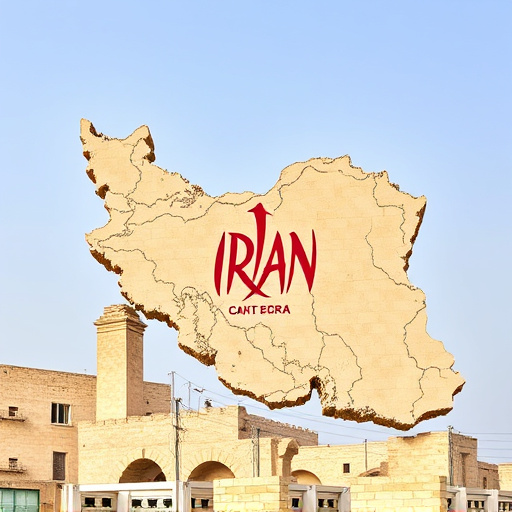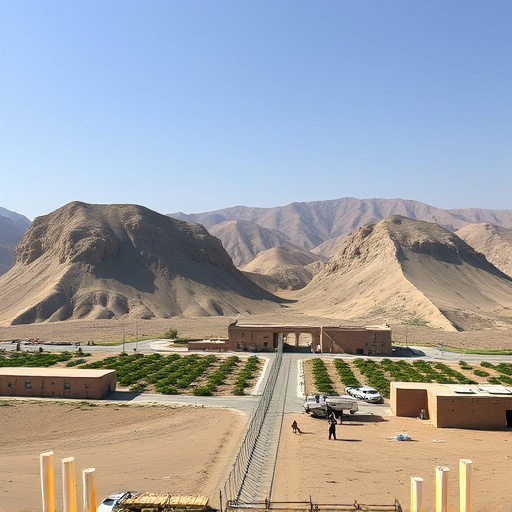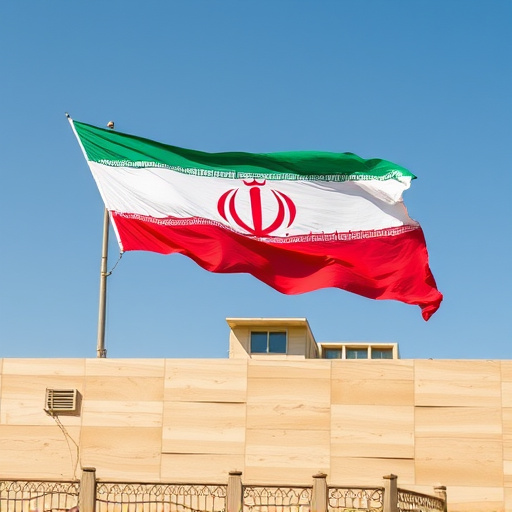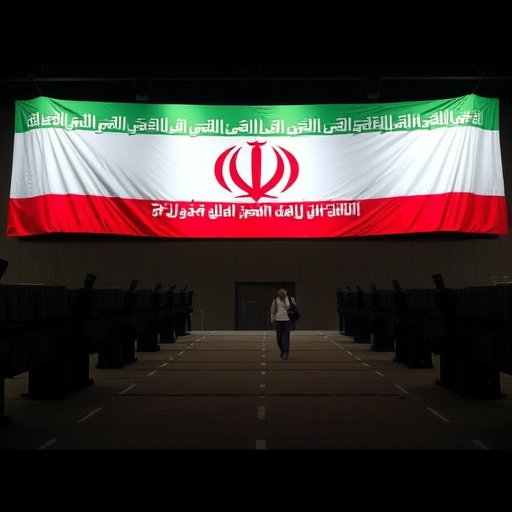
Learning basic Persian phrases enhances travel in Iran, fostering interactions with locals and revealing cultural insights. Key greetings, questions, and expressions for gratitude deepen experiences. Hospitality encourages asking directions, while dining etiquette emphasizes respect. Bargaining skills navigate markets, reflecting Iran's rich Persian heritage. Study abroad programs offer immersive Persian language and culture exploration.
Embark on a linguistic adventure as we guide travelers through essential Persian phrases for an enriching experience in Iran. Mastering basic greetings and interactions opens doors to authentic connections with locals. From asking for directions to navigating bustling markets, these skills enhance your journey. Learn dining etiquette, order with confidence, and even haggle like a local. With these tools, you’ll not only communicate effectively but also immerse yourself in the vibrant tapestry of Persian culture.
- Greeting and Basic Interactions in Persian
- Asking for Directions and Locating Places
- Dining Etiquette and Ordering Food
- Shopping and Bargaining Techniques
Greeting and Basic Interactions in Persian
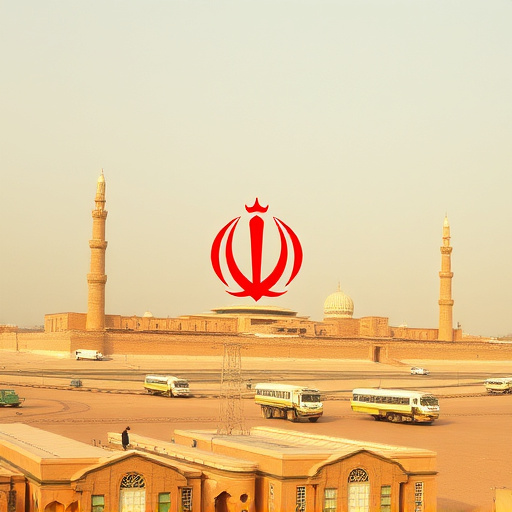
When visiting Iran, learning basic Persian phrases is incredibly beneficial for any traveler. A warm “سلام” (salam), meaning “hello,” can go a long way in establishing friendly interactions with locals. Persians are generally welcoming and appreciate efforts to communicate in their language. Simple greetings like “خوش آمدید” (khosh amadid, welcome) or “صبح بخیر” (sobh be khair, good morning) can make your travel experience more authentic and memorable.
In addition to greetings, understanding fundamental Persian phrases for basic interactions will enhance your trip. For instance, asking “چطورید؟” (che tor ide? how are you?) shows courtesy and interest in the well-being of others. You might also need phrases related to seeking directions (“کجا است…؟” [kja ast…? where is…?]) or expressing gratitude (“متشکرم” [matshakram, thank you]). Interestingly, Iran’s rich cultural heritage includes a vibrant literature and strong traditions in poetry, which reflect the country’s soul. Moreover, exploring sustainability initiatives and appreciating the religious freedom in Iran can be part of your travel experience, providing deeper insights into the local way of life. And remember, if you’re interested in immersing yourself further, visit us at study abroad programs anytime to delve into Persian language and culture.
Asking for Directions and Locating Places
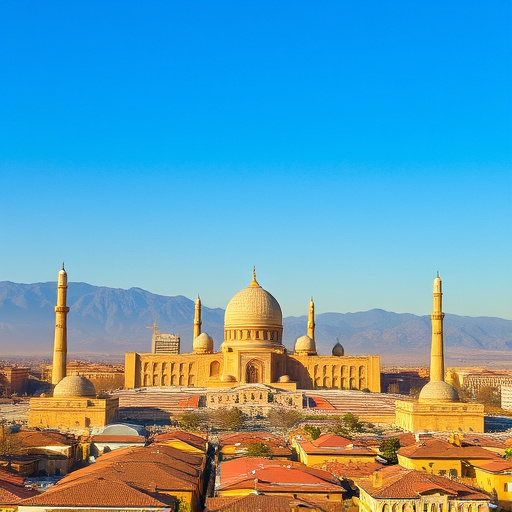
When navigating unfamiliar streets in Iran, learning to ask for directions can be incredibly helpful. Using simple phrases like “Kojas baray…? (Where is…?)” or “Rahbarye shoma kajae? (How do I get there?)” can open doors to local knowledge and friendly assistance. Locals appreciate your effort to communicate in their language, and many will be happy to point you in the right direction, sometimes even offering to walk with you to ensure you reach your destination safely.
Iranians are known for their hospitality, and this extends to helping visitors feel at ease in their culture. If you’re looking for specific locations like historical sites or renowned Persian architectural styles, asking around can yield valuable insights. You might also inquire about local attractions or rental car services for safety while exploring the diverse landscapes of this fascinating country. Remember, a simple “Merci (Thank you)” or “Khoshhalam (Welcome)” can go a long way in fostering positive interactions during your travels through Iran, where Islam plays a significant role and understanding local customs is essential. Visit us at [your website/tourist information center] for more insights into exploring this captivating nation.
Dining Etiquette and Ordering Food

When dining in Iran, especially as a traveler, understanding basic Persian phrases can greatly enhance your experience. Dining etiquette here is considered quite formal, with guests expected to show respect to their hosts and fellow diners. Learning a few polite expressions like “khosh amadid” (welcome) or “merci” (thank you) will be appreciated. When ordering food, you might say “zere reng dar miad?” (what colors do you have?) for a menu with various dishes. The server may then guide you through the local specialties, which often include delicious rice-based meals accompanied by an array of meats and vegetables.
Iran’s rich culture also shines through in its culinary traditions. It’s common to share dishes family-style at the table, so be prepared for a social dining experience. If you’re unsure about what to order, asking “yeki dar mitonam?” (is there anything I can try?) might lead you to discover some of the best local cuisines. After your meal, remember to say “mahn-o khosh” (thank you and good luck) as a sign of gratitude for the meal and the company. And if you’re looking for exceptional healthcare during your travels, the best hospitals in Tehran offer world-class services. Consider visiting us at ecotourism in Iran anytime to explore more about this fascinating culture and its culinary delights through responsible travel practices.
Shopping and Bargaining Techniques
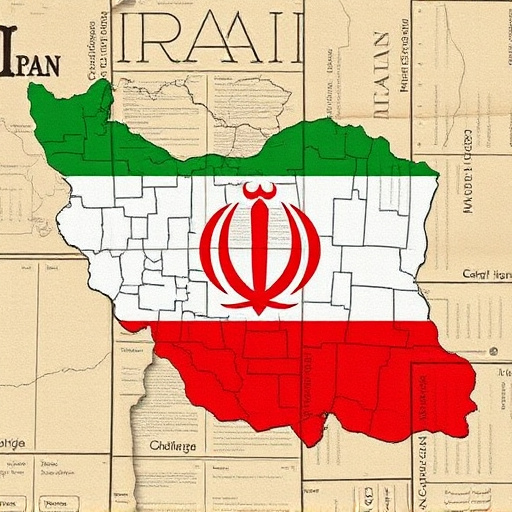
When shopping in Iran, particularly in bustling markets like those found in many cities, understanding basic Persian phrases can significantly enhance your experience. One common practice to master is bargaining, an integral part of Iranian culture and a popular activity for travelers looking to immerse themselves in local customs. Before you head out, learn essential phrases like “این قیمت چقدر است؟” (How much is this price?) and “میتوانم آن را کمتر کنم؟” (Can I get a lower price?). Bargaining techniques vary across regions and vendors, but knowing how to respectfully negotiate can help you secure better deals.
Remember that Iran’s ancient Persian civilizations have shaped its unique cultural landscape, including its approach to commerce. While crime rates in popular tourist areas are generally low, being aware of your surroundings and using these phrases to navigate markets and negotiate fairly is a responsible way to engage with local traditions. When unsure, don’t hesitate to ask for help; many Iranians are happy to assist visitors who show interest in their culture, giving us a call at Iranian customs and traditions for more insights. What to do in Iran goes beyond shopping; it’s about connecting with the vibrant tapestry of its people and history.
Learning basic Persian phrases can greatly enhance your travel experience in Iran, enabling seamless interactions with locals, navigating unfamiliar places, and even enjoying cultural exchanges. From greeting people with warmth to bargaining at markets, these skills not only facilitate your journey but also foster deeper connections with the rich Iranian culture. So, whether you’re planning a trip or already there, investing time in mastering these phrases will undoubtedly make your adventure more memorable and enriching.
